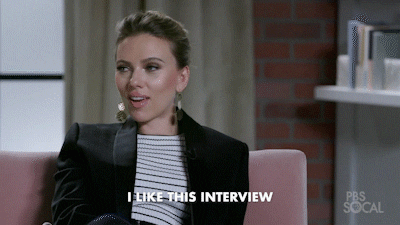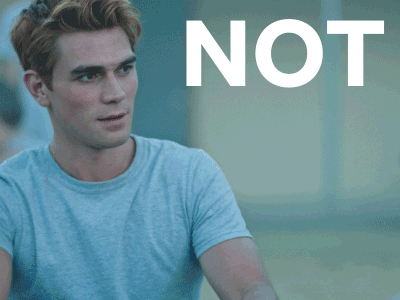Newfangled #12: Did I get the job? Computer says "No"
Do you really want a robot asking you "Where do you see yourself in Five Years Time?"
Bad job interview stories. We all have a few, I’m guessing, like the phone interview, where the interviewer didn’t dial in until ten minutes before the end (to be fair, he put me straight through to the next round, when all I had displayed was patience and understanding).
Or perhaps, the face-to-face interview when the interviewer handed me a case study and went off to make a phone call. He was gone so long that I was chucked out of the meeting room, as the interview room had only been booked for an hour, leaving me to go to reception and explain that I had been abandoned mid-interview. Reader, I turned down the job.
This week, I stumbled across AVIs: automated video interviews.
Harvard Business Review explains:
AVIs involve job candidates being interviewed by an artificial intelligence, which requires them to record themselves on an interview platform, answering questions under time pressure. The video is then submitted through the AI developer platform, which processes the data of the candidate — this can be visual (e.g. smiles), verbal (e.g. key words used), and/or vocal (e.g. the tone of voice). In some cases, the platform then passes a report with an interpretation of the job candidate’s performance to the employer.
Let’s unpack this a little bit
Customer Lens
Let’s make some assumptions about the problem this is trying to solve. Newfangled’s best guess at the customer pain point:
“I want to hire the best person to fill my vacancy but I have so many applicants, it is really time-consuming.”
There are other challenges like equality, diversity and inclusion, consistency, fairness. But I suspect this is a cost-saving led technology and customer testimonials all centre on time saved.
Technical Feasibility Lens
There are two levels here:
Level 1: Based on the video submitted, can the technology accurately assess the desired criteria?
Can the technology accurately transcribe what is said? If my tally of comedy moments provided by automated captions is anything to go by, not always. Check out these blunders.
Does the number of times you say “I” versus “we” really determine how good you are at teamwork? Maybe.
Although we talk about artificial intelligence, it isn’t necessarily intelligent - instead, it is machine learning based on a sample of data. And that sample of data is not necessarily bias-free, especially if your dataset is not diverse or inclusive. Research suggests that ‘Fairness cannot be automated’.
Level 2: Is the video submitted accurately reflecting the candidate’s capability for the desired skills?
All candidates will be asked the same question in the same way, which might not happen in face-to-face interviews. Twenty seconds for the question and then a countdown clock on your answer is high-pressure.
This research in HBR indicated that candidates did not understand how they were being assessed, and many became “robotic” thinking that would work best for the dehumanised assessor.
All candidates experienced some level of confusion. The perceptions that they are “processed” through technology at a crucial stage of their working lives affects young job seekers from less privileged backgrounds in particular, who might have an accent, use less formal expressions or tone of voice, or even be less confident in how to look professional in front of a camera.
On a lighter note, this slightly reminds me of Powerpoint Karaoke: an improvisation game where you give a presentation from a slide deck that you have never seen—also known as Battledecks. Perhaps Powerpoint Karaoke is a more accurate test of the skills you might need in a management career.
Business Model Lens
AVI saves the inefficiency of scheduling interviews. Even if watched in playback, there will be efficiencies by viewing at 1.25x or 1.5x (Pro-tip for online learning). But could you achieve the same thing by interviewing fewer candidates?
For this, I bring you The Secretary Problem, where maths takes a look at how you should handle these sorts of decisions. Summary: if N is your number of candidates, interview and reject the first N/2.7 candidates to get a sample of performance and then accept the first candidate that is better than any you have seen so far.
Does this help with the quality of candidates? Not if the best candidates self-select out of the AVI process or don’t perform well under pressure on camera. The candidate experience here needs work by the AVI companies. If unsuccessful candidates have feedback and guidance to improve, outcomes might differ.
Is it brand-enhancing? I think the irony here is that companies are evaluating candidates’ soft skills by exhibiting a complete absence of soft skills, and ultimately, I find this inconsistency impossible to reconcile.
I am open to other perspectives. What am I missing?
Tell me why I am wrong about robot interviewers:
The Round-Up
What we’ve been watching?
This 15-minute explainer about the battery industry
What we’ve been reading?
Tiny Habits by B.J. Fogg - improve your systems and processes to reach your goals. 1
What we’ve been enjoying?
This powerful article about Eartha Kitt speaking out at a presidential luncheon - how Batgirl became unhireable for a decade.
Affiliate link.




First off, your title makes me think of how some American cities have been forced to use A.I. 911 operators. "If you are being stabbed, press 1," seems like a pretty grim future.
Second, in terms of job interviews: there are plenty of people smarter than I who have poked holes in anything with an algorithm. There's a brilliant youtuber named the Spiffing Brit who makes a career out of breaking down exploits in video games.
He eventually realized the tricks he used to break games could be used to break AI or machine-based systems in the real world. Free money loops on Amazon. Free credit loops on the steam store. The stock market... youtube itself, etc.
An A.I. will only hire you someone smart enough to break the A.I.